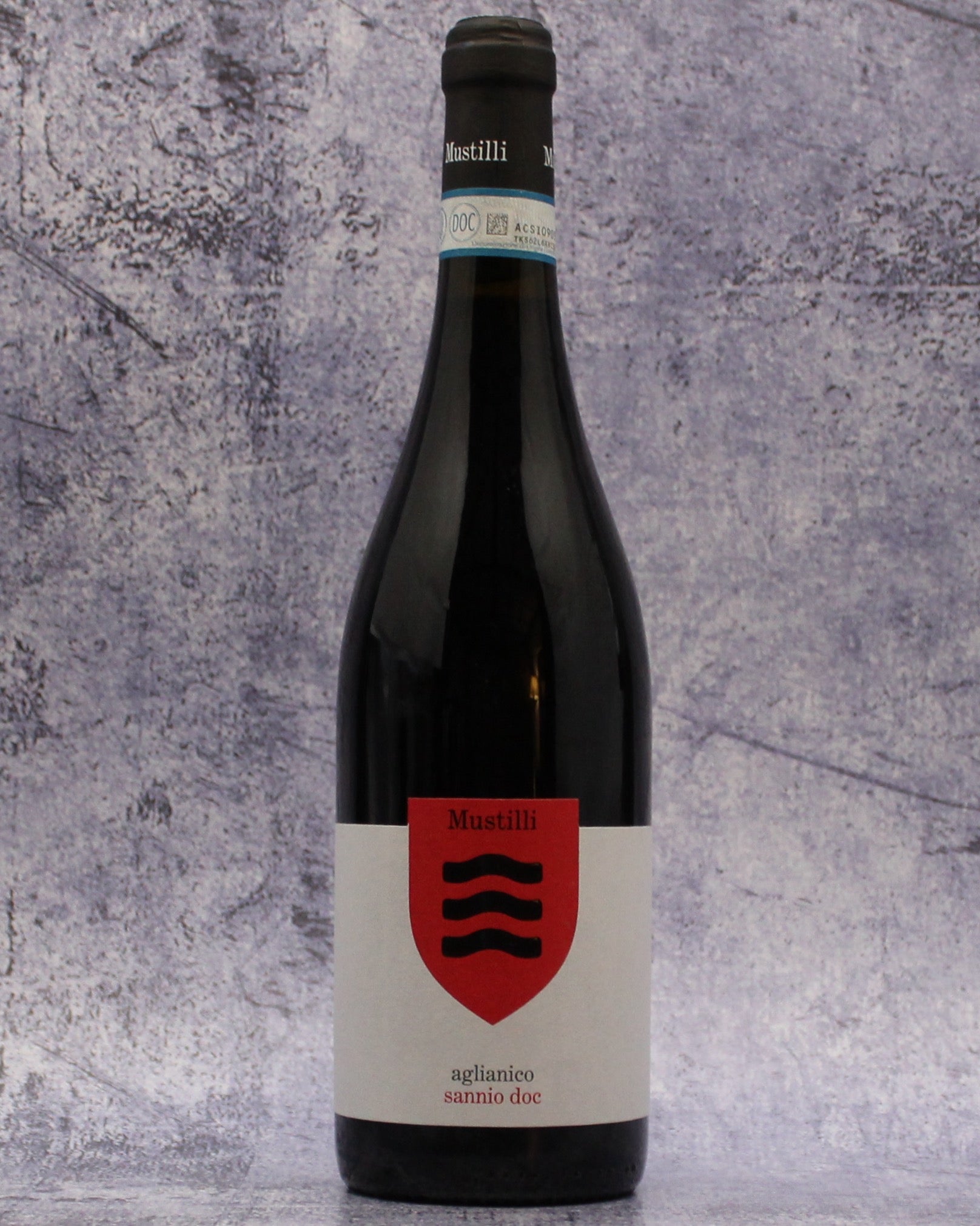Description
From: Sant’Agata dei Goti, Benevento, Campania, Italy
Varietal: Aglianico
Tasting Notes: This wine is deep ruby red with vibrant violet reflections. It offers an intense and persistent bouquet of sour cherry and black cherry on the nose, accented by hints of black pepper, myrtle, and turmeric. The palate is dry, savory, and decidedly tannic, with a full-bodied structure. Flavors of ripe fruit dominate, complemented by a return of the wine’s subtle spice notes. This wine is best enjoyed at a serving temperature of 15°C (59°F), showcasing both richness and complexity.
Pairing: Aglianico, with its bold structure, ripe fruit, and spicy notes, pairs beautifully with traditional dishes from the Campania region. Classic pairings include grilled lamb chops seasoned with rosemary, Neapolitan ragù, a slow-cooked meat sauce rich in tomato and herbs, and cotechino sausage, a hearty and flavorful Italian specialty. Another great match is eggplant parmigiana, where the tannins of Aglianico cut through the richness of the cheese and tomato.
For contemporary American dining, Aglianico complements barbecue short ribs, with its smokiness and deep flavors balancing the wine's tannins. It also pairs well with blackened ribeye steaks, enhancing the charred spices. The wine's acidity and spice can also elevate a wild mushroom and truffle pizza or a blue cheese burger, where the wine's bold character matches the richness of the cheese. These modern pairings highlight the versatility of Aglianico in both traditional and contemporary dining experiences.
Eggplant Lasagna
By Lidey Heuck
About. The Mustilli family in Sant’Agata dei Goti, Campania, has been crafting wine for over five centuries. Their history traces back to the early 14th century when the family settled in this medieval village. Sant’Agata dei Goti, part of the Sannio DOC, is a region famed for its indigenous grape varieties, and Mustilli stands as its sole winery. Spanning more than 20 hectares, the estate is planted entirely with traditional Campanian grapes such as Aglianico, Piedirosso, Falanghina, and Greco di Tufo, each cultivated with organic practices that mirror the family’s respect for the land.
In the 1960s, Leonardo Mustilli revitalized the family’s winemaking tradition, implementing modern hygienic techniques. In the 1970s, he became the first to bottle pure Falanghina, a grape variety nearing extinction. His efforts preserved this ancient varietal and helped re-establish it as one of Campania’s most revered wines. Today, Leonardo’s daughters, Anna Chiara and Paola, carry his legacy. Anna Chiara manages the vineyards and winemaking, while Paola oversees the business's commercial side, handling sales locally and abroad.
Despite technological advancements, Mustilli maintains many traditional winemaking techniques, ensuring the family’s values and deep connection to the land remain intact. The estate’s vineyards, spread over calcareous, clay-rich soils, are meticulously cared for with integrated pest management systems, ensuring the vines' health and the surrounding environment.
The Mustilli philosophy extends beyond wine. The family promotes the region's cultural heritage and hosts events celebrating art, music, and local traditions. Their commitment to producing wine in harmony with nature and fostering a culture of quality living is reflected in every bottle they craft. Though modest at around 3,000 cases annually, their production embodies a deep respect for history, tradition, and the unique terroir of Campania.
This Aglianico from the Sannio DOC is sourced from vineyards at 250 meters above sea level. The vines are trained using the Guyot system, with a planting density of 5,000 per hectare, yielding around 70 quintals per hectare. The vineyard sits on calcareous, volcanic, and clay-rich soils with a southern exposure. The winemaking process begins with fermentation and maceration in stainless steel tanks at a controlled temperature for about ten days, followed by malolactic fermentation. The wine is then aged in stainless steel for 5 to 10 months and undergoes at least 3 months of bottle aging before release.

